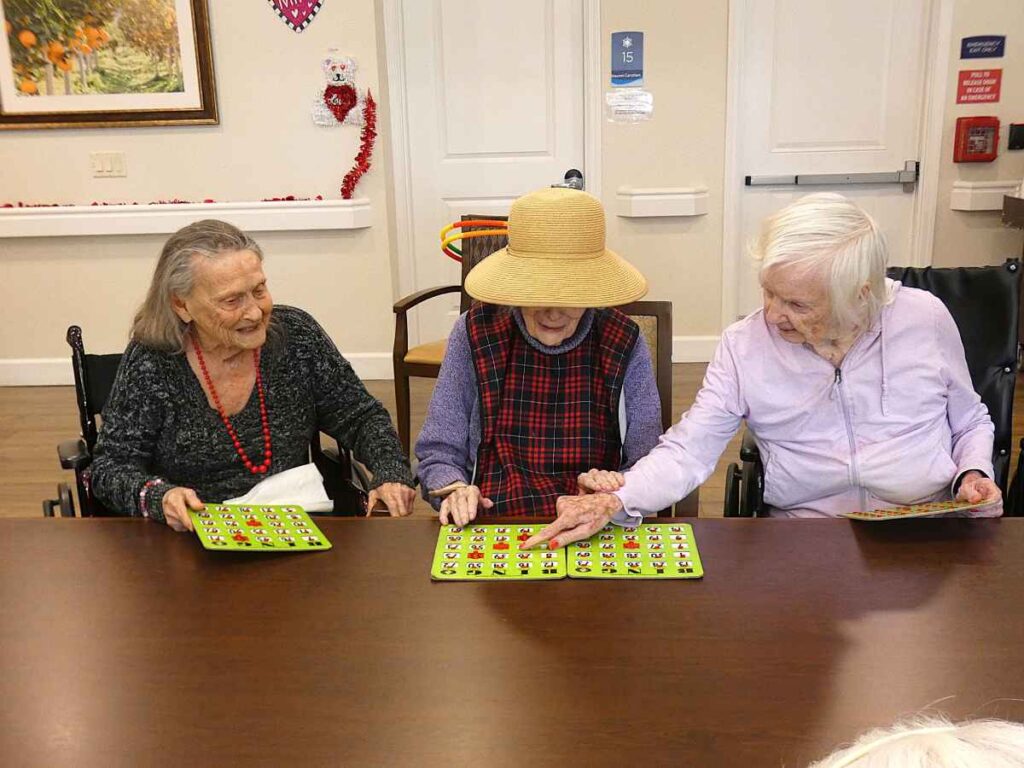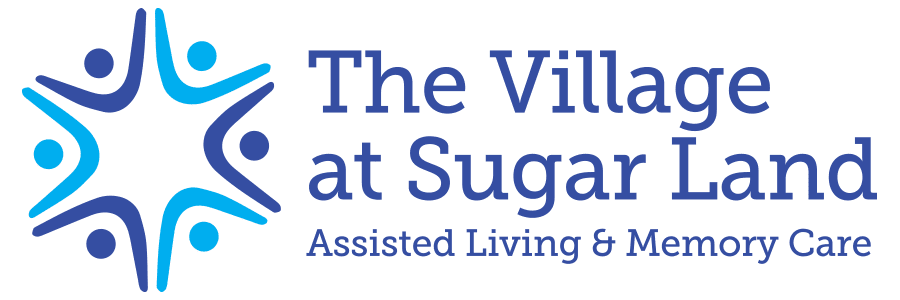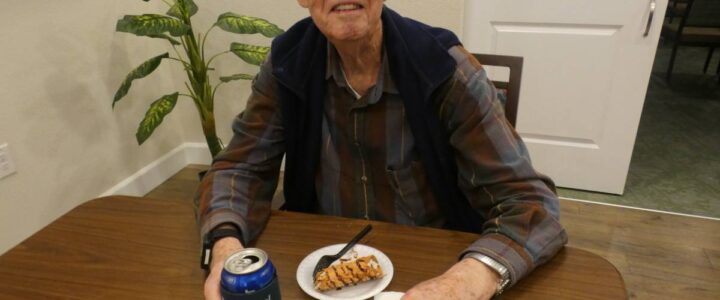TL;DR: This blog explores why personalized care plans are essential in memory care facilities and how they help seniors live with dignity, comfort, and meaningful support. Readers will learn how tailored care improves safety, quality of life, and long-term well-being for loved ones with dementia.
Key takeaways include:
- How individualized care plans adapt to changing cognitive and physical needs.
- Why customized patient care supports chronic disease management and overall health.
- The importance of strong care coordination among caregivers, medical staff, and family members.
- How personalized senior care enhances daily engagement, physical activity, and emotional stability.
- The role long-term care planning plays in anticipating future needs and ensuring consistent support.
When your loved one is living with Alzheimer’s or another form of dementia, a one-size-fits-all approach simply doesn’t work. Every resident has a unique history, personality, routine, and set of health needs. That’s why the best memory care communities focus on personalized care plans—thoughtfully designed strategies that help each resident feel understood, supported, and safe.
At The Village at Sugarland, we take this approach to heart. Our goal is to provide personalized senior care that respects the individual, honors their preferences, and adapts as their needs change. Whether a resident requires help with daily routines, additional emotional support, or careful medical oversight, individualized attention makes all the difference.
Below, we explore why personalized care matters, how it works, and what families can expect from a community that prioritizes customized patient care.
Why Personalized Care Plans Matter in Memory Care
Memory loss affects everyone differently. Some individuals may struggle with short-term memory but remain physically active and independent. Others may need extra guidance, reassurance, and hands-on support. Personalized or individualized care plans ensure your loved one receives the exact level of care they need—not too much, not too little—while still promoting dignity and autonomy.
These plans typically address several important areas:
- Daily routines and personal preferences
- Cognitive support
- Chronic disease management plans
- Social and emotional engagement
- Nutrition customized to individual needs
- Safe and meaningful physical activity
A tailored approach also strengthens trust between residents and the care team, improving comfort and reducing anxiety. When staff members truly understand a resident’s background and communication style, they can respond in ways that feel familiar and soothing.
How Personalized Care Guides Long-Term Support
Memory care is not just about meeting a resident’s needs today. It’s also about thoughtful long-term care planning that anticipates tomorrow. Dementia is progressive, and support strategies must evolve over time. A strong care plan adapts as your loved one’s abilities, routines, or medical conditions change.
Ongoing assessments allow the team to adjust:
- Treatment plans
- Daily care routines
- Levels of assistance
- Safety strategies
- Social engagement opportunities
This proactive approach ensures residents always receive appropriate care, even as conditions shift.
Supporting Residents with Chronic Conditions
Many older adults in memory care are also managing long-term medical issues such as hypertension, diabetes, arthritis, or heart disease. A standard care model often falls short in addressing these complex needs, but personalized plans include dedicated chronic disease management plans that support residents more holistically.
With a medically informed approach, the care team is able to monitor symptoms closely, manage medications accurately, and work to prevent complications before they arise. They can also adjust daily activities or dietary needs based on medical recommendations, while coordinating with outside providers whenever specialized support is required.
This level of individualized attention helps residents manage chronic conditions more effectively, reducing health risks and improving both comfort and overall quality of life.
The Role of Care Coordination
Strong care coordination is what transforms a written plan into real-world support. Memory care residents rely on a network of professionals, and communication between them must be seamless.
Care coordination typically involves:
- Nurses and medical directors
- Direct caregivers
- Activity and life-enrichment specialists
- Therapists (physical, occupational, or speech)
- Physicians or outside healthcare partners
A connected care team ensures that everyone understands the resident’s current needs and that no detail is missed. If a resident begins eating less, sleeping differently, or showing new behaviors, communication flows quickly so adjustments can be made.
This collaborative approach is especially important for residents with complex medical needs or multiple specialty providers.

Involving Family Members in the Process
At The Village at Sugarland, we believe families are essential partners in creating meaningful care plans. No one knows your loved one better than you, and your insights into their history, personality, routines, and preferences help guide the development of truly customized patient care.
Family involvement plays a vital role throughout the care journey. Relatives often share background information and personal stories that help the care team better understand the resident. They participate in care plan meetings, help identify goals for quality of life, and communicate any changes they observe during visits. Families also review ongoing updates as needs evolve to ensure every decision remains thoughtful and well-informed.
When family members stay engaged in this process, communication strengthens, decisions improve, and residents feel more connected, understood, and supported.
Enhancing Daily Life Through Personalized Activities
Personalized care isn’t only about medical support—it’s also about creating joyful moments every day. Memory care communities that prioritize individualized planning place great emphasis on meaningful engagement and safe physical activity tailored to a resident’s current capabilities.
Activities might include:
- Music therapy based on favorite songs
- Reminiscence programs using personal photos
- Guided exercise to improve balance and strength
- Art projects that stimulate creativity
- Outdoor walks for residents who enjoy fresh air
These experiences help residents feel more at home and maintain a sense of purpose. They also support emotional well-being, reduce agitation, and promote cognitive stimulation.
Creating Treatment Plans That Respect the Individual
Medical support in memory care must always be person-centered. Residents may have unique reactions to medications, specific triggers, or personal preferences that affect how they respond to care.
That’s why personalized treatment plans are so important. They allow clinicians to make careful decisions that account for:
- The resident’s medical history
- Current symptoms
- Behavioral patterns
- Goals for comfort and well-being
The goal is not just symptom management—it’s enhancing overall quality of life.
Customized Care Leads to Better Outcomes
When memory care facilities invest in personalized approaches, residents experience noticeable benefits, including:
- Greater emotional stability
- Improved physical comfort
- Fewer hospitalizations due to stronger chronic disease management plans
- Increased engagement
- Better overall safety
- More meaningful connections with caregivers
Most importantly, customized care respects the resident as an individual—not just someone with dementia, but a whole person with a rich past and a meaningful future.
Why Personalized Care Is the Standard at The Village at Sugarland
We believe that exceptional memory care begins with compassion, understanding, and a commitment to individualized attention. Our care team works closely with residents, families, doctors, and specialists to design individualized care plans that evolve over time and support every aspect of well-being.
From long-term care planning to daily routines, from care coordination to managing medical needs, we ensure each resident receives the thoughtful, respectful support they deserve.
Because when care is personal, it’s powerful.
Planning a move to a care community? Discover practical tips that ease the transition for seniors and families. Read the full article now.








